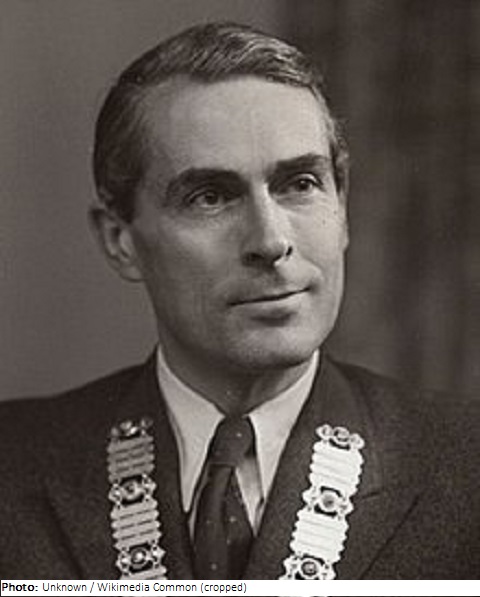
| Roles | Referee |
|---|---|
| Sex | Male |
| Full name | William Graham•Holford |
| Used name | William Graham•Holford |
| Born | 22 March 1907 in Johannesburg, Gauteng (RSA) |
| Died | 17 October 1975 (aged 68 years 6 months 26 days) in Lambeth, England (GBR) |
| Title(s) | Baron |
| NOC |  Great Britain Great Britain |
In his time, Lord Holford was inspirational in transforming town planning from a small part of local and central government to the major one that it has become across Britain these days. His influence on town planning would also spread to other countries worldwide.
Educated at the Diocesan College in Cape Town, Holford came to England and studied architecture at Liverpool University. He was an outstanding student, and in 1930 won the Rome Scholarship in Architecture. He also won another prize that took him to the United States. Upon his return he worked as an architect and town planner, and at the age of 30, was appointed a lecturer in Civic Design at Liverpool University. He held the post for 11 years before being appointed professor of Town Planning at University College London, where he stayed until his retirement in 1970.
During World War II, Holford was leader of a team of government architects responsible for the design of ordnance depots, camps and factories. After the War, he was appointed adviser to the newly formed Ministry of Town and Country Planning, which was to form the basis of modern town and country planning in Great Britain. After leaving the Ministry, he set up his own practice and was in big demand, and he worked on some major projects, including submitting plans for the rebuilding of Piccadilly Circus.
Holford held countless important posts within his profession, and between 1960-62 was president of the Royal Institute of British Architects. In 1961 he received the Gold Medal of the Town Planning Institute. and in 1963, the Royal Gold Medal for Architecture. Holford was knighted in 1953 and made a Life Peer in 1965, the first town planner or architect to receive such an honour. From the early-1960s, Holford’s wife was struck with illness and subsequent invalidity, and he devoted most of his time to looking after her.
| Games | Sport (Discipline) / Event | NOC / Team | Phase | Unit | Role | As | |
|---|---|---|---|---|---|---|---|
| 1948 Summer Olympics | Art Competitions |  GBR GBR |
William Graham Holford | ||||
| Architecture, Designs For Town Planning, Open (Olympic) | Final Standings | Judge | |||||
| Architecture, Architectural Designs, Open (Olympic) | Final Standings | Judge |